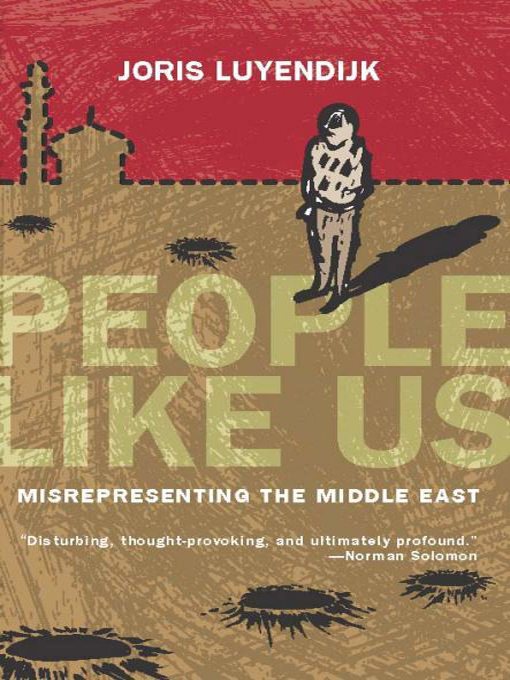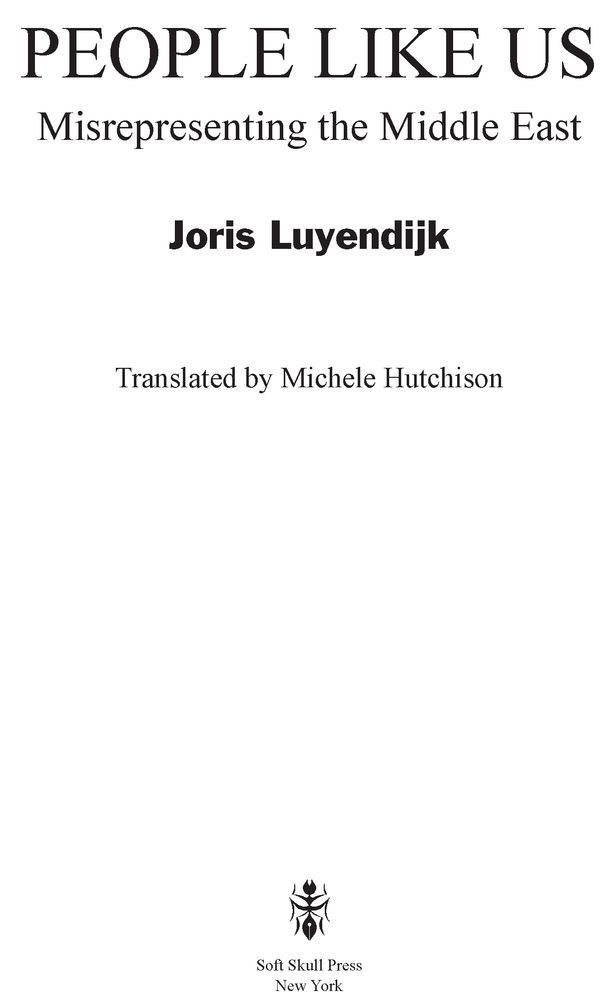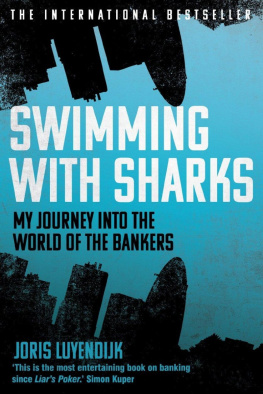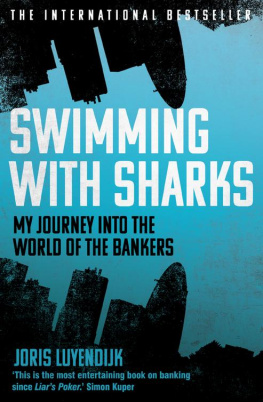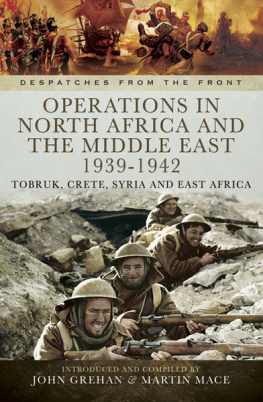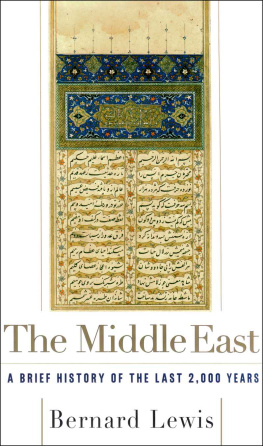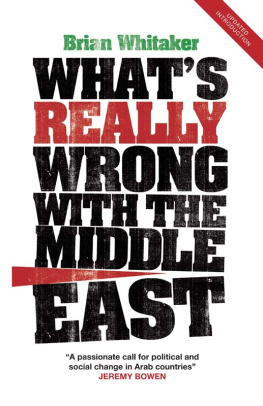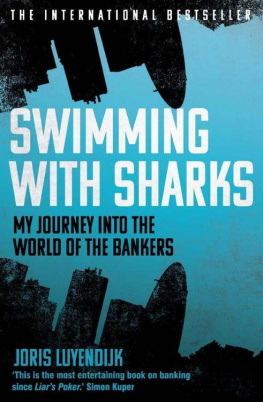Table of Contents
About the Author
Joris Luyendijk was born in 1971. He studied Arabic and politics at the University of Amsterdam and the University of Cairo. In 2006, he was awarded the Journalist of the Year prize by De Journalist, selected from the top forty most influential international journalists by the NVJ (the Dutch Association of Journalists).
For my father
And then I said: Well God, what I want to know, God right, all this hunger, misery, illness, catastrophe. Errrr, child abuse, child porn and the Holocaust. Why? And then He said: Well, because of this and that, and this and this and this and this and that. And then I said: Aha! Yes indeed. Yes-yes-yes, oh yes. Of course ... No, now I understand. So its not that bad then, right?
Hans Teeuwen, Sweater (Trui)
Theres a war between the ones who say theres a war and the ones who say there isnt.
Leonard Cohen, Theres a War
Prologue
Hello, Everybody!
One more? The Medicins Sans Frontieres (MSF) coordinator came out of the field hut and looked down at his boots. I nodded, and realized Id have to come up with something pretty quickotherwise in the next hut Id have tears streaming down my pale cheeks, and that was really not what I wanted.
It was a rainy day in September, and I was walking around the village of Wau in southern Sudana place that newspapers had been labeling famine-afflicted and war-torn for the last twenty years. Somewhere on the other side of the river were the rebels; on our side, MSF had set up a camp for starving refugees. For as long as it lasted, a ceasefire was in force.
Are you sure you want to see it? an experienced correspondent in the capital, Khartoum, had asked. Famine shelters can mess up your hard drive. Another advised, Do it on autopilot. All you need to think is, Can I use this for my article?
Well, what the MSF coordinator had just shown me in the first two huts was ideal for my article: Pot-bellied children Id recognized since primary school as the victims of starvation; bones showing through their skin like the poles of a half-blown-down tent; toddlers so emaciated that their mothers had to support their heads to keep their necks from breaking. This was very useful stuff for my article.
The coordinator and I walked past a poster. Dont Fight the Civilian Population, it said, above a picture of plundering soldiers and helpless-looking civilians. The village where the camp was located was closed down. The Islamic Purity Coffee House, the Office for the Registration of Pledges and Promises, Pope John Paul Middle School, Nazareth Greengrocerstheir shutters were down, their doors were boarded up, and their verandas were full of refugees. People of all sorts had been thrown together here: Refugees, villagers, people who believed in Jesus or in Allah, in spirits, or in tree-gods.
We wove our way around puddles and rubbish to the third hut. Thered be another fifty people sitting staring into a void there, sheltering from the rain, morning their dead, waiting for their next food ration. They seemed to look right through me, as if someone had switched off the light in their eyes. So thats why despair is called dull. I wrote down extinguished in my notebook.
Wed arrived. In the first two huts, Id assumed a serious expression and had made a small kind of bow to conceal my awkwardness and hold back the tears, but here I spontaneously raised my hand, forced my face into a smile, and called out, Hello, everybody!
And then it happened. All of a sudden their faces lit up. Girls giggled, an old man shifted in his seat, and children nudged their mothers. Look, Mummy! A little toddler of around two wriggled free from his sister, grabbed my knee with both mitts, and tumbled over. Mothers of emaciated infants burst out laughing and used their free hands to wave.
That was the beginning of my job as a Middle East correspondent, which began in 1998 and lasted for five years. As it came to an end, while my luggage was traveling back to the Netherlands on a cargo ship, I went on a farewell tour, visiting contactspeople to whom I was indebted for visas, personal introductions, and other favors. The last person on my list was an Arab ambassador. In his stately residence in The Hague, the political capital of the Netherlands, we drank tea and I showed off my Arabic for the last time. The ambassador said that it was an odd time to give up a correspondents post, just as the Americans advanced on Baghdad. I told him that Id wanted to stop before but had hung on for a few months because of the war. An assistant came in, whispered something in the ambassadors ear, and switched on CNN. We saw the colossal statue of Saddam Hussein being torn down in Fardoes (Paradise) Square in Baghdad. Jubilant Iraqis screamed into the camera lens and struck the icon with their shoes. Thank you, Mister Bush! The presenter solemnly described it as an historic momentthe war was over. They could put the nightmare of Saddam Hussein behind them. Baghdad was celebrating its liberation, as Western newspapers announced the next day.
Then the ambassador clicked to the Arabic broadcaster, Al-Jazeera. They were showing Fardoes Square, too, but their montage offered a different slant. In the same square, we saw American soldiers triumphantly throwing an American flag over the statue of Saddam. Then we were shown feverish discussions and the American soldiers rushing to remove the flag. Al-Jazeera went on to show the jubilant Iraqis from CNN, only they were shot from a longer range: You could see how few there were actually standing in the square, and that most of the people were watching from a safe distance.
I said goodbye to the ambassador, and over the following months I did what returning correspondents tend to doI started work on a book about my region. But I got stuck almost immediately. Reading the papers or watching the television, I would see someone arguing that fundamentalism was all about this or that, that thered be peace in the Middle East if only Israel would withdraw from the occupied territories or if America would stop supporting the dictators. And then I would think, Well, there are good arguments for that; then again, there are good arguments against it. I couldnt figure it out, and thats why my book wasnt working.
Then I thought back to my second week as a correspondent. Id just got back from Sudan and was waiting at the Ministry of Information in Cairo to have my papers stamped. It was taking a while, and I got chatting to a fellow correspondent who was also waiting. He was a real veteran, and within five minutes was telling me in a whisky-soaked voice that his best friend had died in the Iran-Iraq war. The Commodore Hotel during the Lebanese Civil War, oh those were the days! What? You dont know the Commodore? He was that kind of man. When I told him that I was a writer and Id just started as a correspondent, he grinned: If you want to write a book about the Middle East, youd better do it in your first week. The longer you hang around here, the less you understand.
That was unkind, and probably meant that way, but back in the Netherlands I began to understand what hed been talking about. Before going there, Id had certain preconceptions about the Middle East, mostly derived from the media. Once I arrived, my preconceptions were slowly replaced by reality itself, which proved to be rather less coherent and understandable than the media had depicted. The first time I came up against this was in that third hut in Wau.

